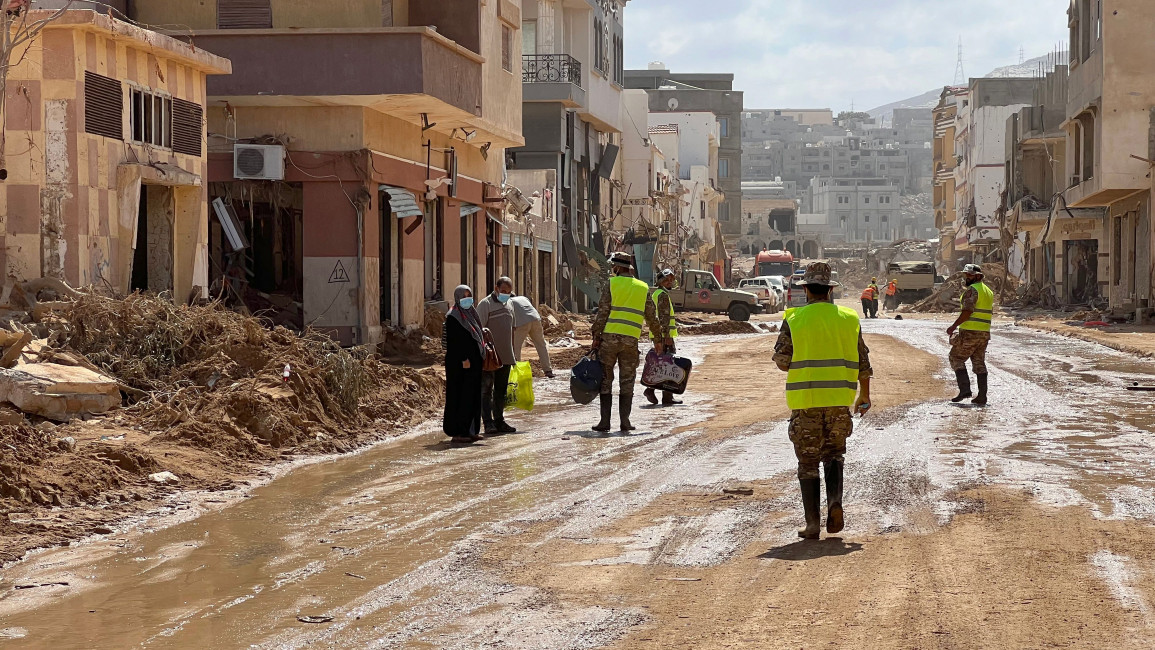Libya's eastern-based government announces fund for flood-hit Derna
Libya's eastern-based government announced Wednesday the creation of a fund for the reconstruction of Derna, weeks after it was hit by a devastating flood that swept thousands out to sea.
Although not recognised internationally, the eastern government also said in a statement that it would host an "international conference" on 10 October to aid the port city's reconstruction.
It had initially called on the entire "international community" to participate, but on Wednesday it said the conference would "open the door for international companies to present the best suited projects for the city's nature and terrain".
In its statement, the eastern administration said it had "approved the creation of a reconstruction fund for the city of Derna" and other areas affected by the 10 September flooding.
It did not indicate how the new fund would be financed, but Libya's House of Representatives, also based in the east, has already allocated 10 million dinars ($2 million) for reconstruction.
According to the latest toll announced by the eastern authorities on Tuesday, at least 3,893 people died in the disaster. International aid groups have said 10,000 or more people may be missing.
Libya has been wracked by division since a NATO-backed uprising toppled then killed veteran dictator Muammar Gaddafi in 2011.
The North African country is now divided between an internationally recognised Tripoli-based administration in the west, and the one in the flood-stricken east backed by military strongman Khalifa Haftar.
Despite a wave of nationwide solidarity since the flood, there has been no show of support for the proposed conference from the Tripoli-based government of interim Prime Minister Abdul Hamid Dbeibah.
Jalel Harchaoui, a Libya specialist at the Royal United Services Institute, said that "institutionally" the eastern government "does not exist because it is not internationally recognised".
It is therefore "unlikely that countries will give money to the east", he said, adding that "in all likelihood, the money must go through Tripoli".
He suggested that Dbeibah may seek to take advantage of the tragedy to unblock Libya's foreign assets and investments that have been frozen by the United Nations for over a decade to prevent their theft following the uprising.



